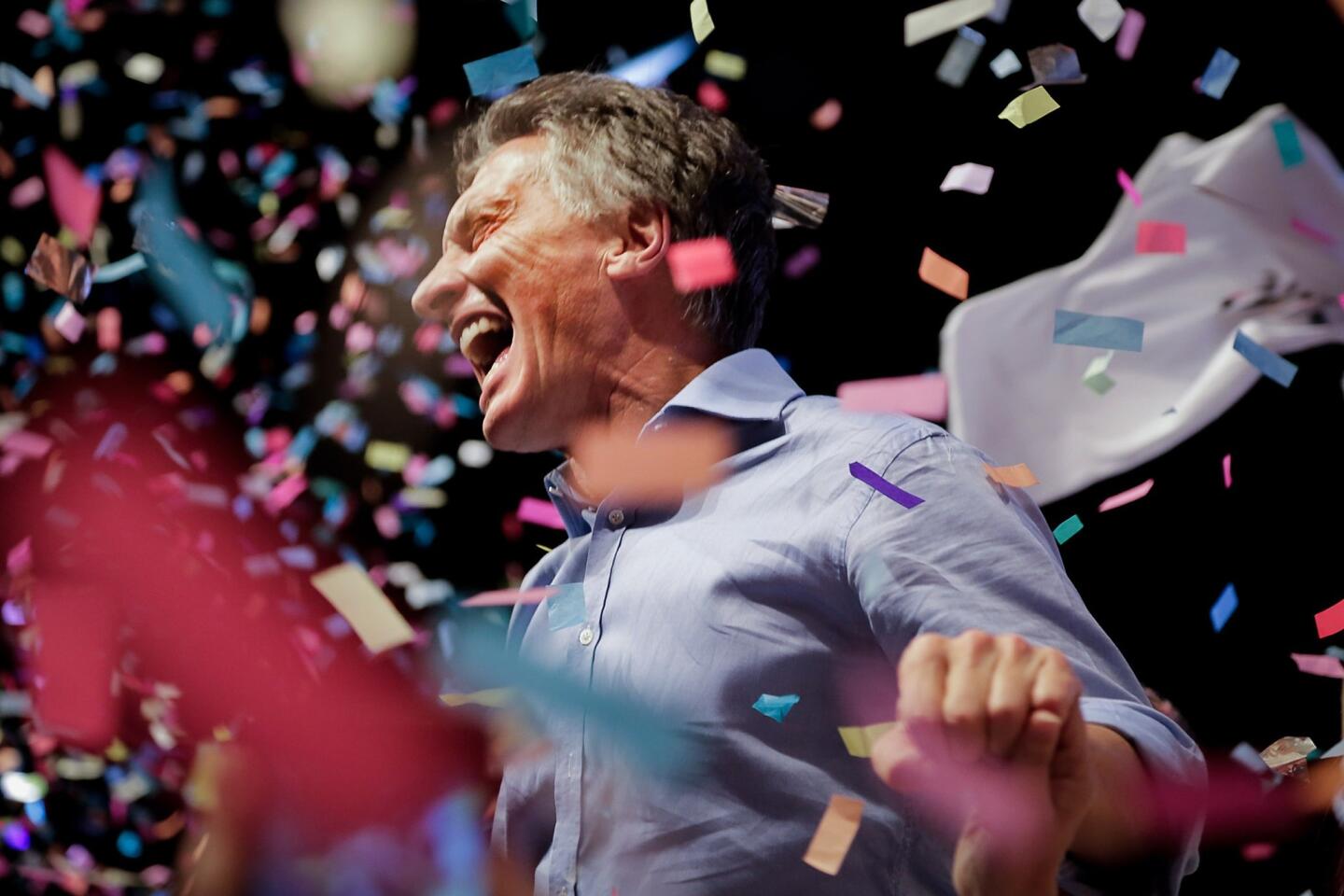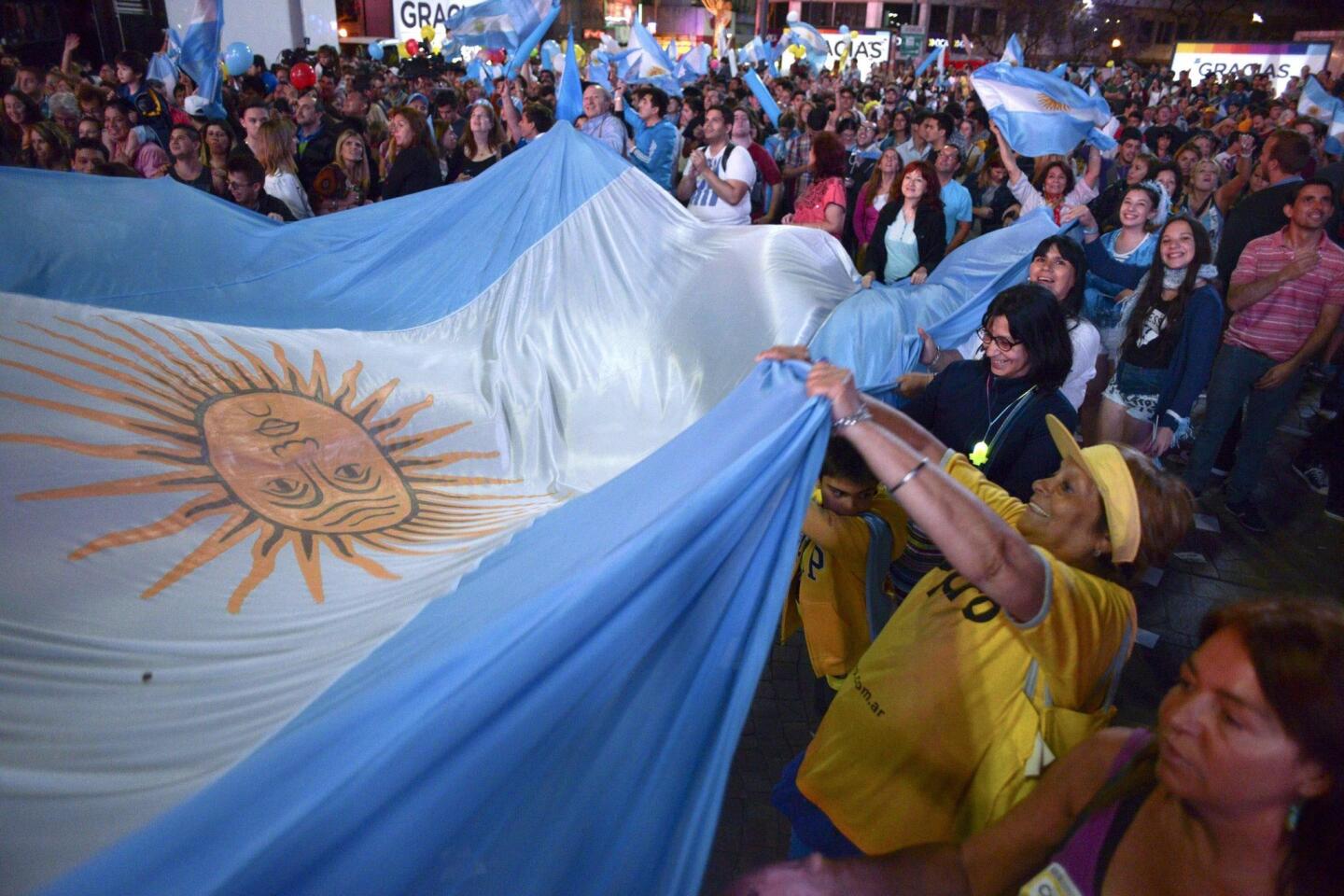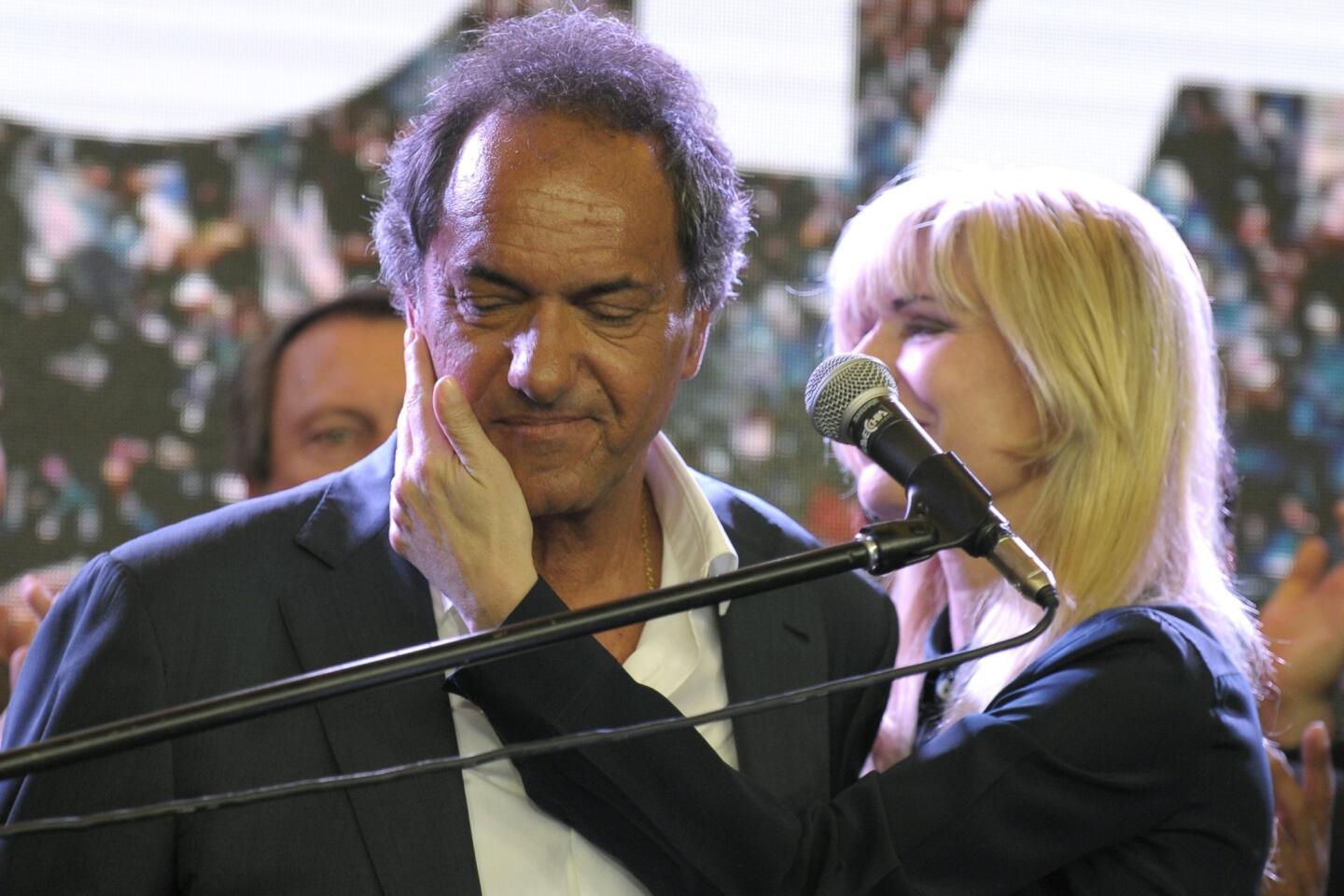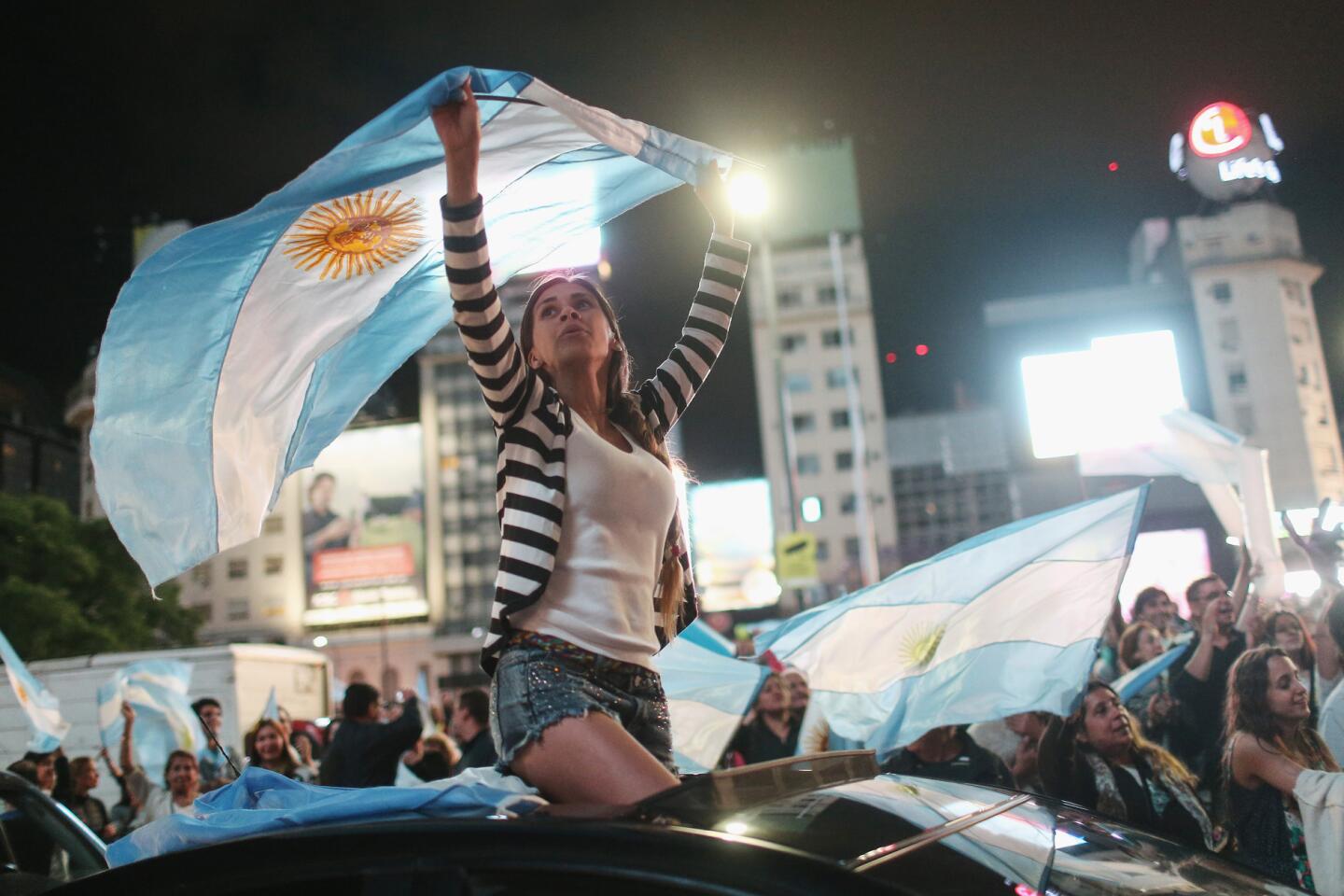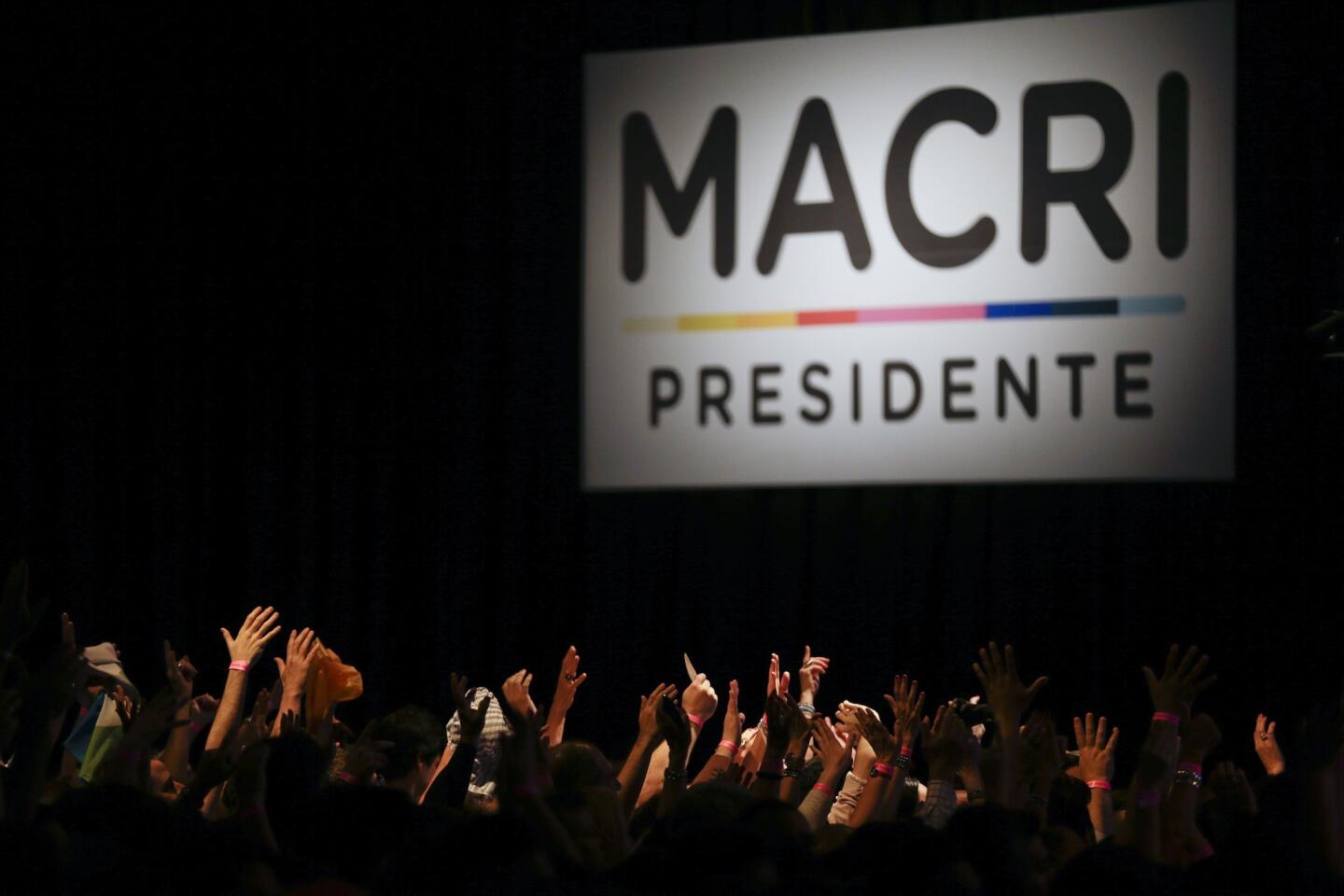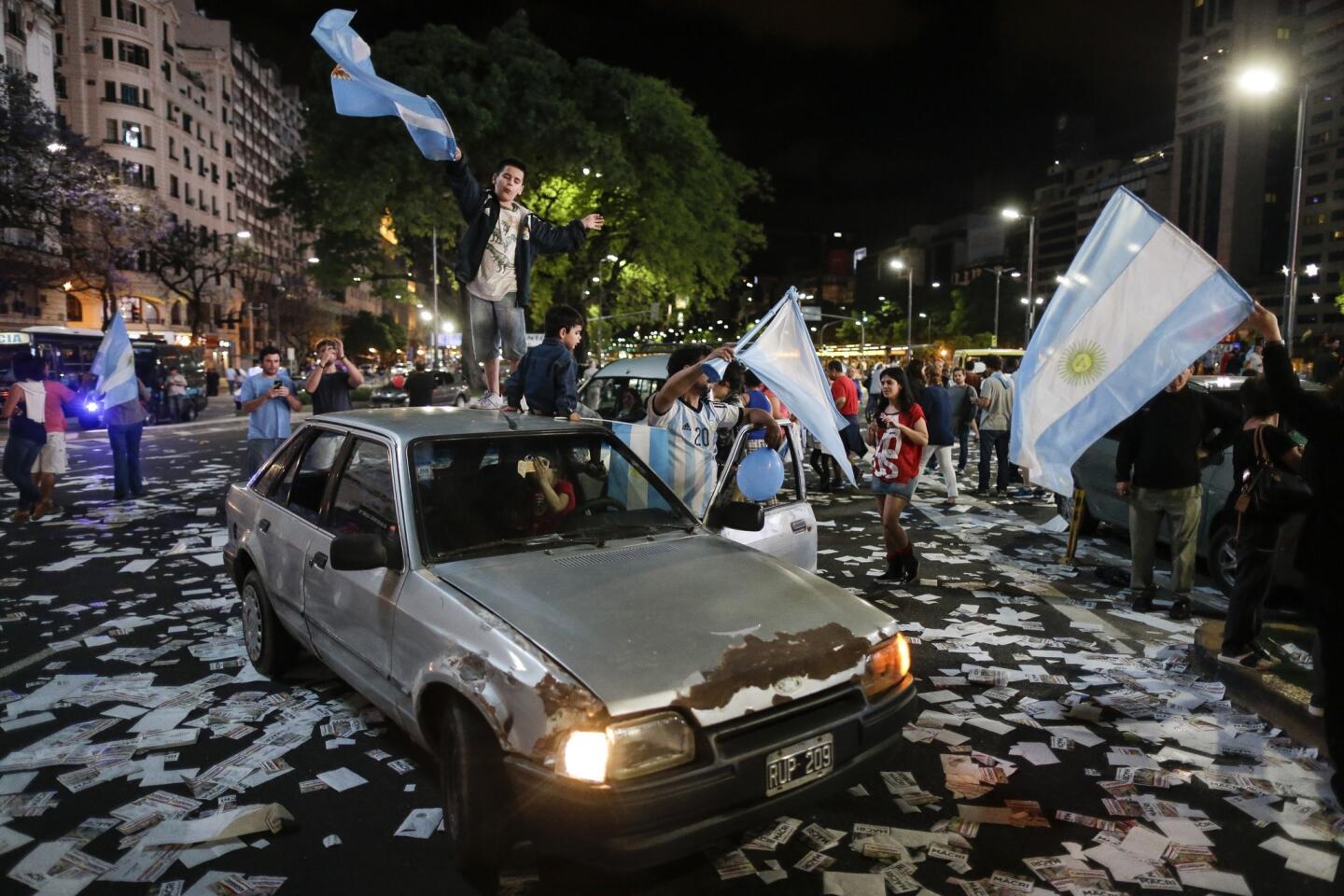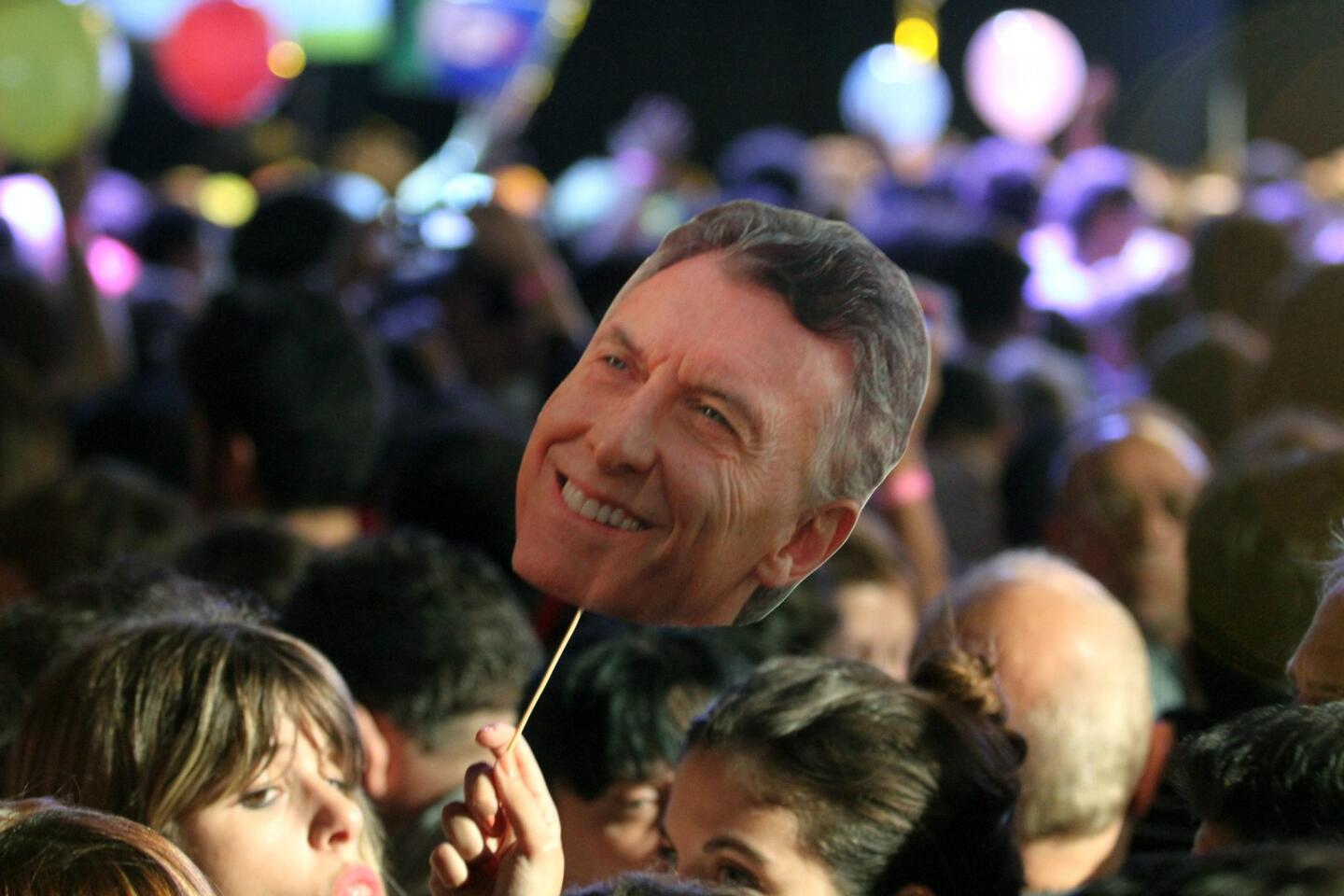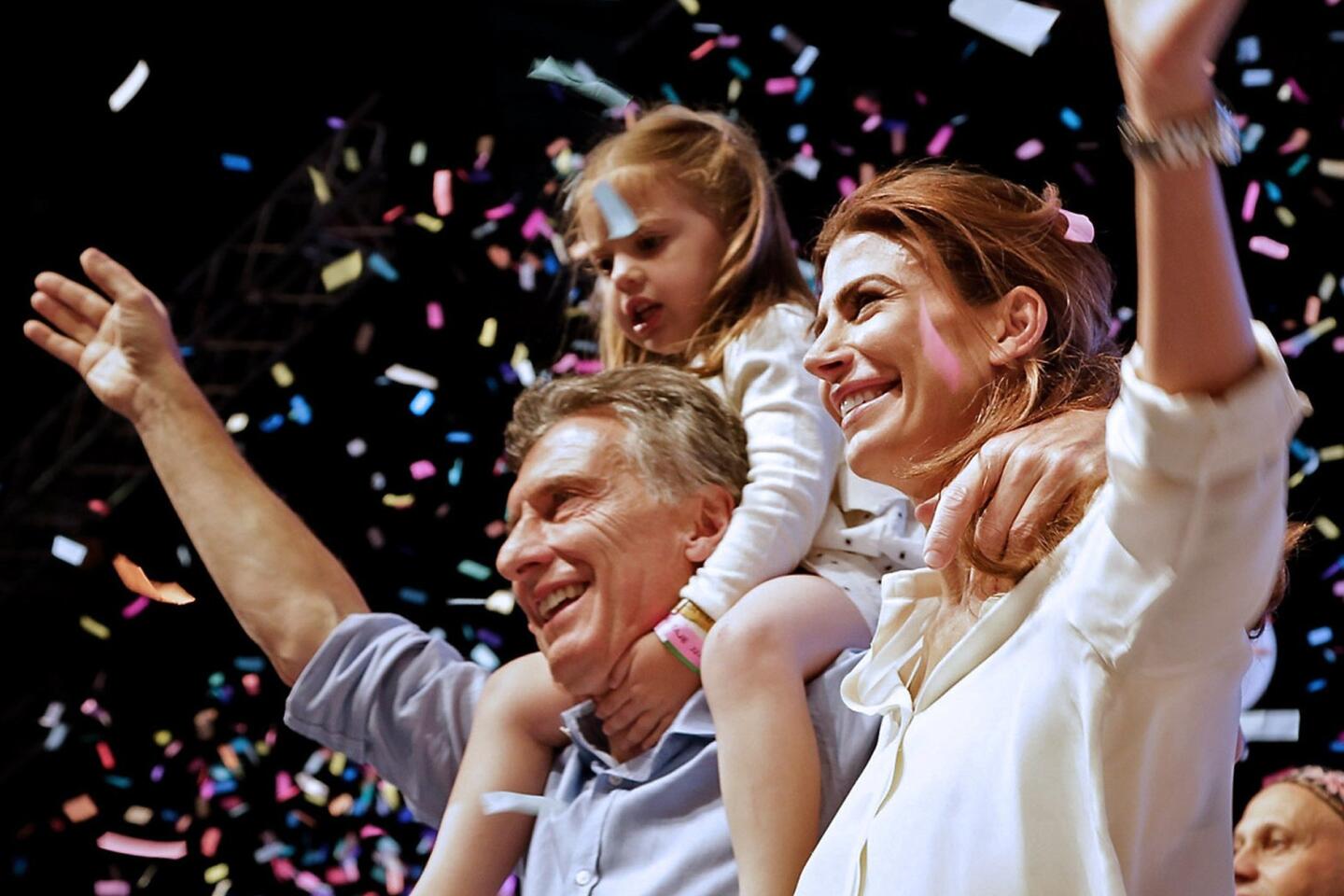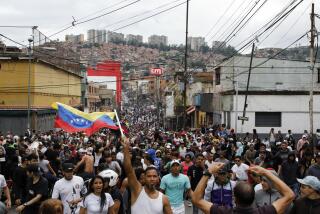Argentina elects center-right president, repudiating Fernandez de Kirchner
- Share via
Reporting from Buenos Aires — Riding a wave of voter discontent over a stagnant economy, Buenos Aires Mayor Mauricio Macri won Argentina’s presidential runoff election Sunday as voters repudiated the policies of the departing president, Cristina Fernandez de Kirchner.
With roughly two-thirds of the country’s ballots counted, Macri, a center-right candidate, was leading with 54% of the vote, giving him a comfortable margin over Daniel Scioli, Fernandez’s handpicked candidate, who had 46%.
Scioli conceded defeat shortly before 10 p.m. and Fernandez called Macri to congratulate him and arrange a meeting on Tuesday.
“The popular will has shown itself by electing a new president, Mauricio Macri,” Scioli said in an appearance at his campaign headquarters in Buenos Aires. “I called him to wish him success for the benefit of the country.”
All major exit polls had Macri winning. A final tally is expected Monday.
A former president of a professional soccer club, Macri, 56, is mayor of the country’s capital and largest city. He has promised to jettison much of Fernandez’s left-leaning economic policies, which critics say have led to 28% inflation, stagnant growth and a drying up of foreign investment.
“This is an enormous joy and I feel that we are living a historic day that will change our lives,” Macri said after voting with his wife at a school in the capital’s Palermo district. “I hope Argentina is about to enter a new stage.”
Recent voter preference polls gave Macri, who heads the center-right PRO coalition, leads of up to 12 percentage points against Scioli, who as Victory Front party leader is the governor of Buenos Aires state and a former professional boat racer who lost his right arm in a racing accident.
In the first round of voting on Oct. 25, Scioli tallied 37% of votes cast, ahead of Macri’s 34%. Congressman Sergio Massa finished third at 21%. Although Massa declined to throw his weight behind either of the top two finishers, a majority of his support had been expected to go to Macri.
Voters were reacting to 12 years of “kirchnerismo” – the interventionist policies of Fernandez, who has been in office since 2007, and those of her late husband and predecessor, Nestor Kirchner, who served a four-year term starting in 2003.
A sign of Fernandez’s waning electoral strength was the loss of the Buenos Aires governorship in October to opposition candidate Maria Eugenia Vidal, who will succeed Scioli. It was the first election since 1987 that a Peronist –the name given to followers of populist President Juan Peron and his wife Eva – has not won the country’s most populous state.
Macri has been vague on specific proposals but has said he would make government more “intelligent” and reduce a fiscal deficit that is expected to reach 7% this year, a reflection of Kirchner’s election-year spending.
Macri has said the three priorities of his administration would be “zero poverty, fighting drug traffickers and improving institutions,” a reference to Fernandez’s purported use of the judiciary and regulatory agencies to thwart opposition legislation.
Macri said he will “adjust” currency controls that have fed much of the country’s double-digit inflation. While the government maintains an official exchange rate of about 9.5 pesos to the dollar, the black market rate is currently around 14.5 pesos to the dollar.
Fernandez’s populist policies have included restricting imports, a heavy hand in farm policy and subsidies of energy and transportation prices that are popular with poor constituents. She is constitutionally barred from running for a third term.
Fernandez also expanded the country’s social safety net by augmenting elderly care, education spending and pensions. She has reduced poverty by paying out monthly stipends to families to improve their children’s school attendance and regular medical treatment.
After voting in her southern city of residence, Rio Gallegos, Fernandez described the election as “historic.” She said that Argentina has had 12 years of “economic constancy and progress” following a crisis that included a 2001 bond default and devaluation.
“The streets in peace, people working and taking vacation -- we have never had a period of government with this reality of economic stability and progress,” Fernandez said.
In the final weeks of the campaign, the president’s son, Maximo, who heads kirchnerismo’s La Campora youth movement, sent out social media messages warning supporters that Macri, if elected, would discontinue the social programs expanded by his mother.
Macri responded by criticizing what he called scare tactics. “Social plans are not a gift but a right and we are not going to discontinue them,” Macri said at a campaign event last week.
Special correspondents D’Alessandro and Kraul reported from Buenos Aires and Bogota respectively.
More to Read
Sign up for Essential California
The most important California stories and recommendations in your inbox every morning.
You may occasionally receive promotional content from the Los Angeles Times.
